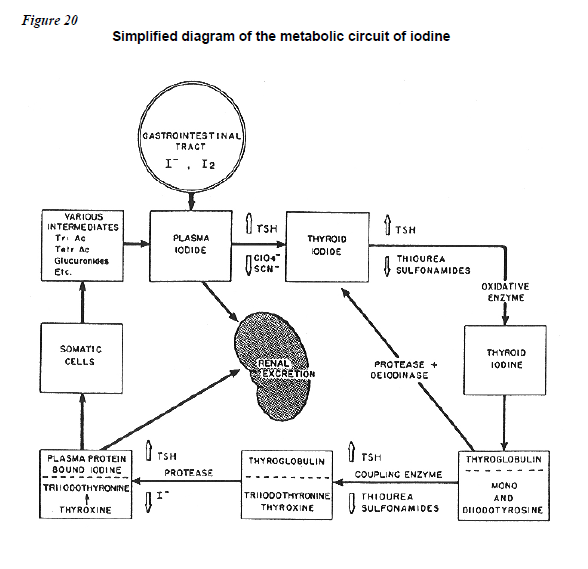Stanbury, J.B. 1950. Physiology of endemic goitre. In: Endemic Goitre. p. 261-262. Geneva. World Health Organization.
At present, the only physiologic role known for iodine in the human body is in the synthesis of thyroid hormones by the thyroid gland. Therefore, the dietary requirement of iodine is determined by normal thyroxine (T4) production by the thyroid gland without stressing the thyroid iodide trapping mechanism or raising thyroid stimulating hormone (TSH) levels.
Iodine from the diet is absorbed throughout the gastrointestinal tract. Dietary iodine is converted into the iodide ion before it is absorbed. The iodide ion is bio-available and absorbed totally from food and water. This is not true for iodine within thyroid hormones ingested for therapeutic purposes. Iodine enters the circulation as plasma inorganic iodide, which is cleared from circulation by the thyroid and kidney.
The iodide is used by the thyroid gland for synthesis of thyroid hormones, and the kidney excretes iodine with urine. The excretion of iodine in the urine is a good measure of iodine intake. In a normal population with no evidence of clinical iodine deficiency either in the form of endemic goitre or endemic cretinism, urinary iodine excretion reflects the average daily iodine requirement.
Therefore, for determining the iodine requirements, the important indexes are serum T4 and TSH levels (indicating normal thyroid status) and urinary iodine excretion. The simplified diagram of metabolic circuit of iodine is given in Figure 20.

No comments:
Post a Comment